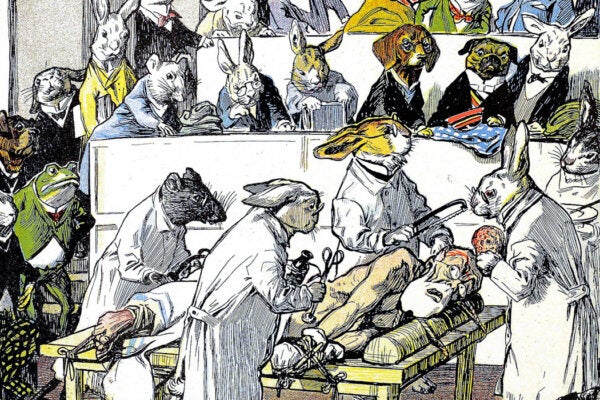Who Took the Cocaine Out of Coca-Cola?
The medical profession saw nothing wrong with offering a cocaine-laced cola to white, middle-class consumers. Selling it to Black Americans was another matter.
The Joy of Burglary
In the early 1900s, a fictional “gentleman burglar” named Raffles fascinated British readers, reflecting popular ideas about crime, class, and justice.
Creating Communities for Disability Activism
In the 1960s, young disabled people found each other at camps and colleges, creating ever-expanding networks for challenging discrimination.
The Novels that Taught Americans about Abortion
Twentieth-century novels helped readers to learn about the practicalities of abortion as well as the social and moral questions around the procedure.
Political Corruption in Athens and Rome
Bribery was widespread in the ancient world. That didn’t mean it was considered acceptable.
Haunted Soldiers in Mesopotamia
In ancient Mesopotamia, many medical disorders were attributed to ghosts, including mental problems faced by men who had spent years at war.
How Government Helped Birth the Advertising Industry
Advertising went from being an embarrassing activity to a legitimate part of every company’s business plans—despite scant evidence that it worked.
The Dangers of Animal Experimentation—for Doctors
Nineteenth-century opponents of vivisection warned that the practice could make researchers and physicians callous toward all living creatures.
The Power of the Veil for Spanish Women
In sixteenth-century Spain, veiling allowed women to move freely through cities while keeping their identities private.
Elephant Executions
At the height of circus animal acts in the late nineteenth century, animals who killed their captors might be publicly executed for their “crimes.”
The Diverse Shamanisms of South America
In Brazil, Indigenous people and city-dwellers of all backgrounds mix various shamanic practices, including rituals imported from North America and elsewhere.
The Metaphysical Story of Chiropractic
Chiropractic medicine began as a practice built on an approach to the human condition that was distinctly opposed to Christianity.
A Bodhisattva for Japanese Women
Originally known in China as Dizāng, the “savior of the damned,” Jizō has evolved into a protector of children and comforter of women in Japan.
Taking Slavery West in the 1850s
Before the Civil War, pro-slavery forces in the South—particularly the future president of the Confederacy, Jefferson Davis—tried to extend their power westward.
Culinary Fusion in the Ancient World
People from eastern Africa, the Arabian Peninsula, South Asia, and Southeast Asia have been sharing food plants across the Indian Ocean for millennia.
The Industrial Revolution and the Rise of Policing
The increased use of machines and the division of labor allowed for the production of standardized products. It also made it easier to fence stolen goods.
Colorful Lights to Cure What Ails You
Between 1920 and the 1960s, tens of thousands of people received treatment with a Spectro-Chrome to address various ailments.
Confucius in the European Enlightenment
Many Enlightenment thinkers admired Confucius, leading to a debate over whether classical Chinese philosophy was compatible with Christianity.
Seeing the World Through Missionaries’ Eyes
One way Americans got a look into life in distant parts of the world in the 1930s and ’40s was through films made by Protestant missionary groups.
Does Adultery Justify Murder?
There’s a popular (mis)perception that, prior to the rise of modern legal systems, a husband was considered justified in killing a straying wife.
Why Not Just Be a Nurse?
To be taken seriously as physicians, women doctors in nineteenth-century Britain felt the need to distinguish themselves from others of their gender.
Meet Saint Wilgefortis, the Bearded Virgin
A Christian martyr, Wilgefortis was divinely gifted with a sudden growth of facial hair to escape forced marriage, only to be crucified by her father.
The International History of “Indigenous” Malay Healers
The origins of Malay and Indonesian dukun healers are intertwined with the history of Persian involvement in the region.
The Swooning Knights of Medieval Stories
In romantic literature of the fourteenth and fifteen centuries, fainting wasn’t just for ladies.
How Astronomers Write History
Scientists’ approach to dating past eclipses changed when they stopped treating classical texts as authoritative records.

























